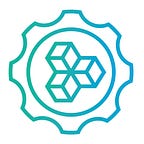Peeking into AI’s “black box” with Devin Dillon, from AI Family Challenge
Artificial Intelligence is everywhere these days: it builds our online search results and curates our social media feeds. It maps our commute routes and powers home appliances like smart thermostats, fridges, speakers, and more. AI makes decisions for many of us everyday, but how it makes those decisions remains a mystery to most.
At MozFest last year, a group of participants got a hands-on crash course in machine learning, the discipline that underpins AI, in the session “Demystifying AI: Create your own predictive model.” Using web-based software called Machine Learning For Kids or ML4K, facilitator and educator Devin Dillon helped participants create their own AI-powered applications or “agents” that could make predictions about a given image or snippet of text. “Intelligent agents can be programmed to sense their environment and independently take actions. Sometimes, intelligent agents are programmed to imitate human abilities — like making predictions or taking actions.” says Dillon. ML4K has a simple interface, but it’s powered by a cloud-based version of the Watson system, IBM’s AI that famously won the TV quiz show Jeopardy in 2011.
At MozFest, participants trained their ML4K agents to make predictions about data they entered into the ML4K tool. The MLK tool is hooked into Watson, to further train the model. Training in this case means providing the agent a set of rules, also known as an algorithm, along with data to test the rules and improve decision-making.
Says Dillon, “ Some people were having the AI make guesses about what type of animal image it was looking at, some were creating agents that could predict if a piece of text was a joke or not.” Participants also took time to discuss how personal data can be used to train AI systems, and why that’s important.
Dillon leads the AI Family Challenge initiative, bringing together families, schools, communities and industry mentors from around the world to learn about AI and then use the technology to solve a problem in their community. She can empathize with those who find AI mysterious. “Before we started, I knew almost nothing about artificial intelligence — just like most of us!” says Dillon, “However, I do know about creating education programs. I’ve supported thousands of educators to lead a lot experiences on Curiosity Machine (the website that hosts AI Family Challenge and other projects) and was a teacher myself for a few years in Baltimore. I decided that was as good of a starting place as any.”
The first season of AI Family Challenge was a huge success, with 7500 participants taking part, across 13 countries. The global technology non-profit Iridescent runs AI Family Challenge and the global education initiative Technovation, which is active in 100+ countries.
“Our ‘big goals’ for the program are to enable in our participants an increased sense of agency as problem solvers and interest in lifelong learning,” says Dillon. “AI is a tool of ‘right now’ but problem solvers and learners will continue to positively change our world.”
AI Family Challenge is a testament to what Dillon describes as a “universal will to continue learning.” She tells of a grandmother in Ethiopia who can’t read, but still brings her granddaughters to the program so they can build new skills together. And a technologist in India who’s developing the program for his community — a connection Dillon actually made at MozFest 2017.
“I love presenting at MozFest because it’s a soft entry to lead people in a skill you are growing or with content you are testing. The participants are excited to learn and sessions are more informal than you’d find at other conferences. “ says Dillon. She did her first AI presentation at Mozfest 2017, testing curriculum for the first AI Family Challenge competition. In 2018 she experimented with a more holistic intro into AI for enthusiastic beginners. Each MozFest experience has shaped the curriculum and how it’s used worldwide.
“I’ve found AI to be a weird topic because many people have opinions, but don’t know where to start learning…they get intimidated by the math and necessary programming skills. says Dillon. “I compare it to riding a bike — maybe you can’t do BMX tricks-, but you can ride your bike around the park, you can learn the basics. Every concept, including AI, has an entry point. AI Family Challenge starts there.”
The session content from “Demystifying AI: Create your own predictive model” is posted in three parts that anyone can access by creating a free account. The second season of AI Family Challenge begins in August; you can sign up here. In addition to the work of the AI Family Challenge, Devin and her team chaired the education track at the ITU’s AI for Good Global Summit, connecting industry leaders, global NGOs and media representatives in support of AI education.
Dillon says. “The lack of understanding about AI is preventing important conversations from happening and seems to be encouraging the anxiety people feel about the technology. I think we need regulation, more informed use and more inclusive development than what we currently have — education is of course a tool for getting more people engaged in its future.”
Check out the MozFest website for the latest Festival news and updates, and be sure to submit your own session to MozFest 2019 now! The call for proposals closes August 1st.
